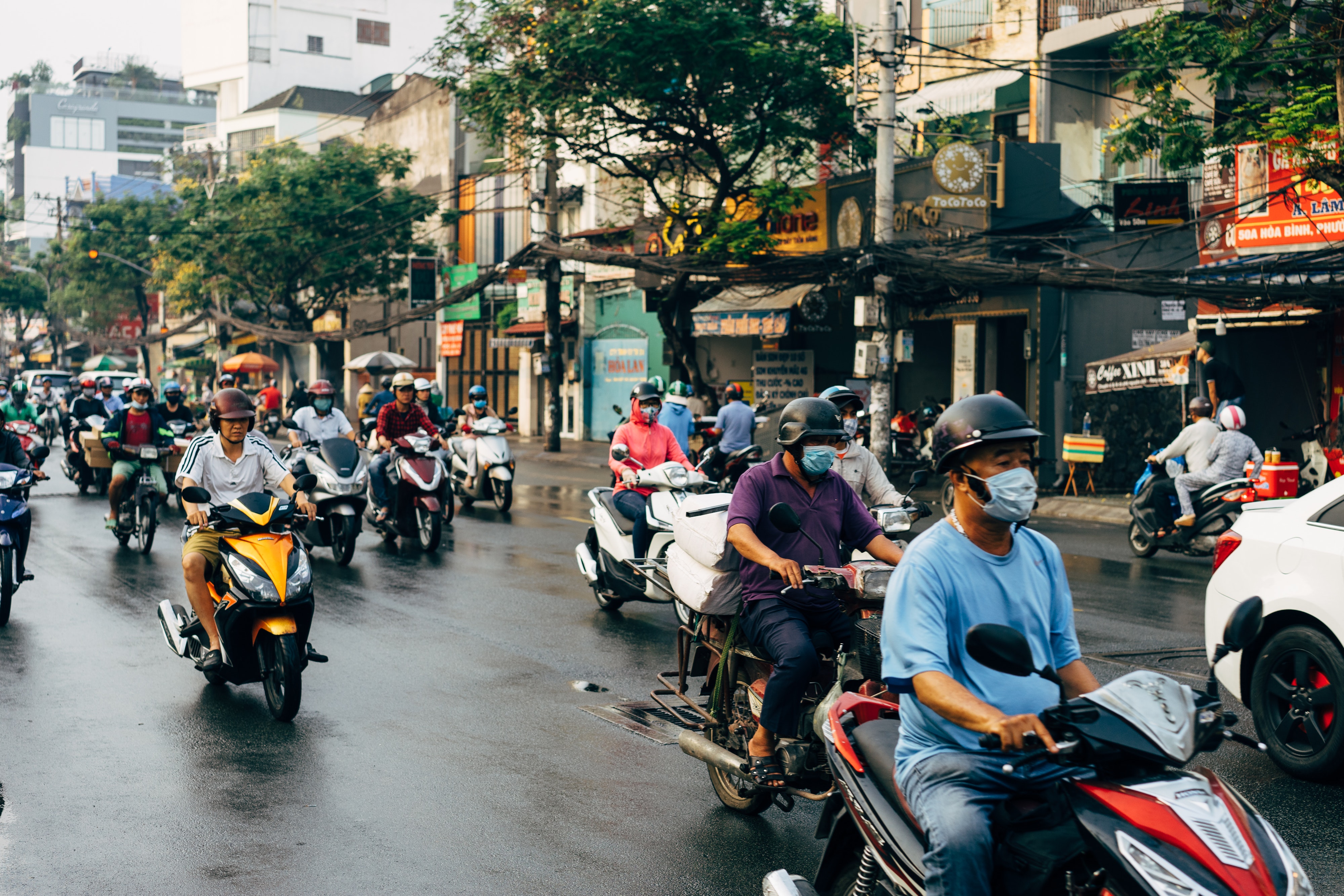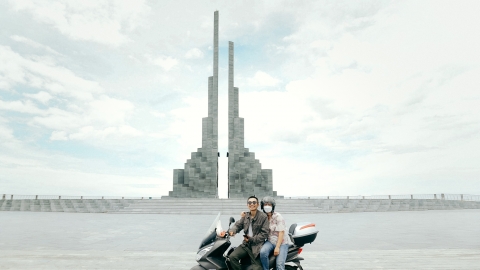Matthew Pike, a writer for the travel website The Culture Trip, shares his perspective on the problems tourists may encounter when visiting Vietnam. The country boasts many beautiful landscapes and friendly people. However, as tourism develops, so do scams. Below are ways to detect and protect yourself from them.
Robbery
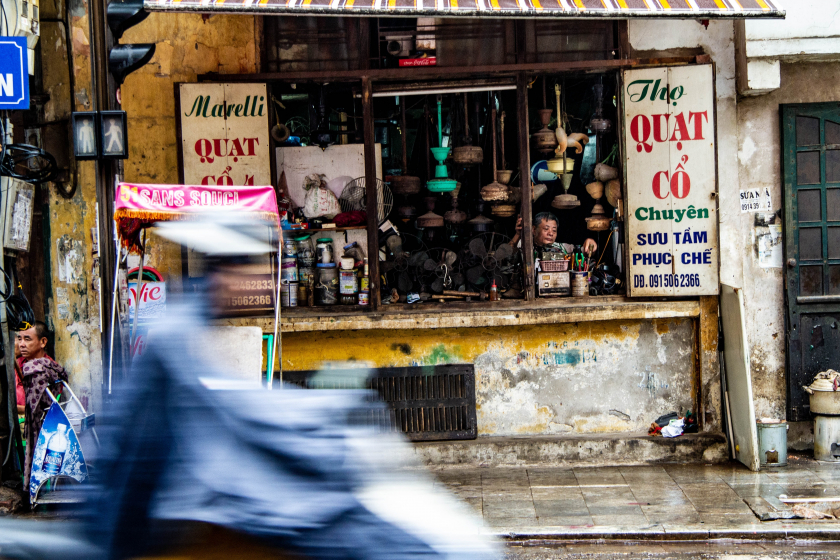
Don't sit too close to the sidewalk and observe the street.
Imagine this scenario: you're sitting in a cafe or chatting on a street corner. A scooter zooms past. The person on the scooter snatches your bag and speeds away. Tourists walking on the streets of Ho Chi Minh City are easily victims of these individuals. How to avoid it? Use bags with secure clasps or shoulder straps. If you're sitting in a street cafe, loop the strap around your table leg and don't sit on the sidewalk.
Faux leather
Shops in Hoi An and Ho Chi Minh City are famous for their handcrafted leather goods, especially handbags, belts, and shoes. Typically, the items displayed in the shop window will be high-quality genuine leather to attract potential customers. Pre-ordered items are often partially fake – with those made of leather but lined with plastic or shoe lining. Before paying, carefully inspect your garment. If you suspect it's fake, heat a piece of metal with a lighter and hold it against the plastic; the metal will melt. Then, ask the seller to sew it back together with genuine leather.
We do not sell discounted tickets to tourists.
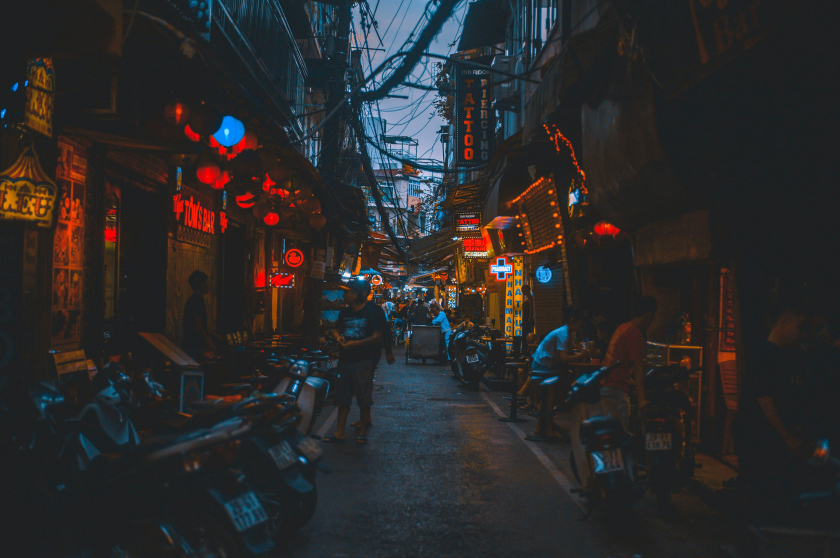
Check the ticket prices carefully before buying.
This type of scam is particularly common at concert venues in Hanoi. While queuing for tickets to a performance, you might be told that all the cheaper seats are sold out and you have to buy a much more expensive option. Always politely but firmly ask the ticket seller to double-check – and if in doubt, politely tell them you don't understand. Then, ask a local for help buying what you need – Vietnamese people are very willing to help tourists.
Note the USD exchange rate.
Prices in Vietnam are often abbreviated and sometimes quoted in US dollars – so 10 could be 10 USD or 10,000 VND (approximately £0.35). Make sure you double-check the amount you're given – especially at bars and restaurants you frequent. And if you're paying in dollars, remember to check that you're receiving the correct change – both at the current exchange rate and in banknote denominations.
Impersonating a travel company
A well-known travel or hotel company will often spawn a host of imitators with almost identical names. For example, a reputable business called Lotus Tours might create a chain of much less professional services called Lotus Tour, Lotus Guest Tours, or Lotus Touring. These often operate in partnership with local drivers. Remember to check the address of the legitimate establishment and share it with your taxi driver before providing the business name.
Bicycle swapping
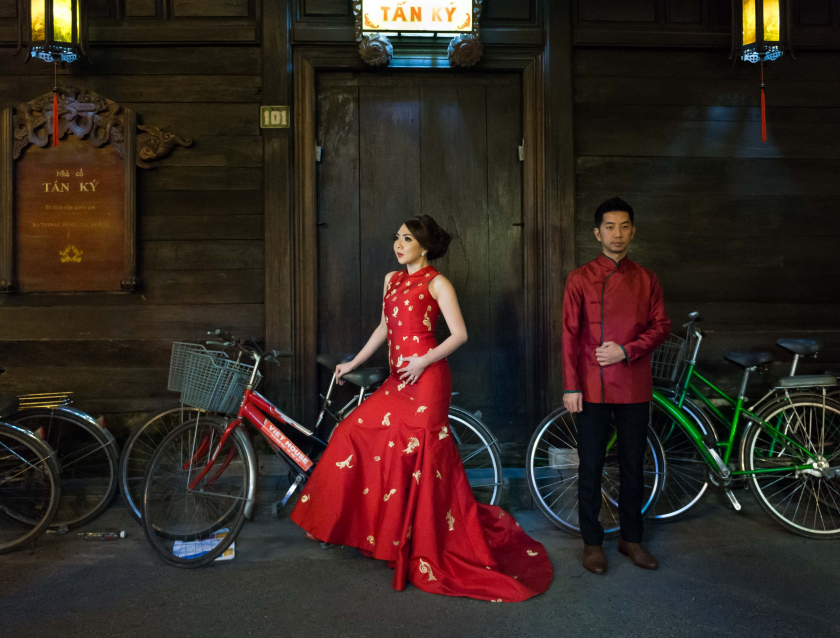
Inspect the bicycle before buying and after signing the contract.
If you're in Vietnam for a while, buying a bicycle and selling it when you leave makes good economic sense. But be wary of situations like faulty bicycles, complicated paperwork, and parts swapping. In this scenario, you might be shown a bicycle, then they'll take it to their workshop for repairs and exchange it for an older, inferior version of the same model. Test ride it, check the paperwork, and verify the registration beforehand carefully.
Buy a SIM card from an official network provider.
Buying a SIM card for your smartphone in Vietnam is very easy, available at almost any store, from official retailers to independent sellers. You don't need to provide any personal information to purchase one. Most tourists can buy SIM cards online from wholesale stores at very cheap prices. However, these are usually old SIM cards with expired data plans.
Money swapping
Motorbike taxi drivers often do this. They use a trick to convert any money you give them into smaller denominations, and then they dramatically express their outrage – to make you look like you're the one trying to extort money from them. The most common scenario is exchanging a 500,000 VND note for 20,000 VND notes, an easy trick to exploit since both are blue. The best way to avoid this is to pay in smaller bills. Split your large bills at convenience stores, restaurants, or other reputable businesses.
Fake taxis
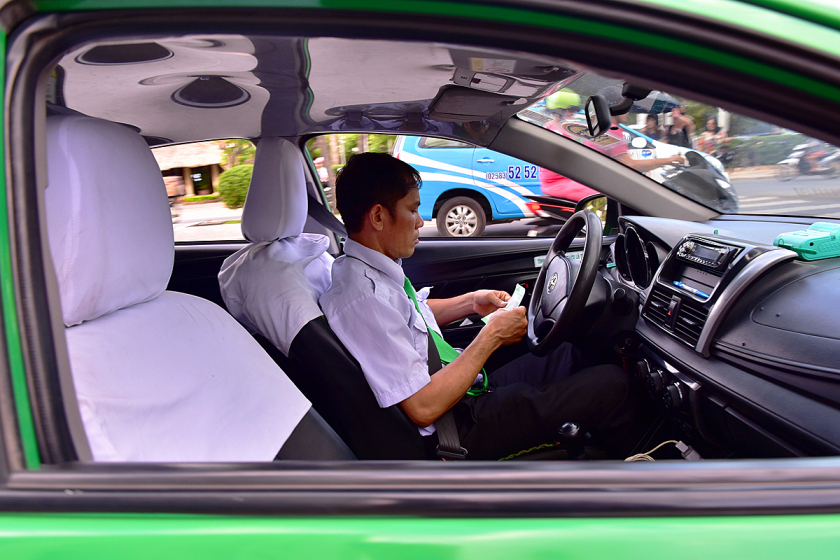
Use reputable, officially licensed taxis.
The two best taxi companies in Vietnam are Vinasun (white) and Mai Linh (blue) – with a few exceptions, their drivers are honest. Unfortunately, other companies use identical color schemes. Their trick is to tamper with the meter so your fare increases suspiciously fast, much faster than necessary. Be careful when paying: taxi drivers, like motorbike taxi drivers, will often try to scam you out of money. To be safe, use reputable companies like Vinasun, Mai Linh – or use a reputable app, such as Grab or Uber.
Overcharging tourists.
This happens mostly in Hanoi. Street vendors with baskets of coconuts will ask if you want to use their bamboo baskets for photos. But while you're taking pictures, they'll chop up the coconuts and sell them to you at a very high price. If you don't agree to buy the coconuts, be prepared for crowds to gather, shouting and accusing the foreigners of deceiving honest Vietnamese people.

 VI
VI EN
EN



